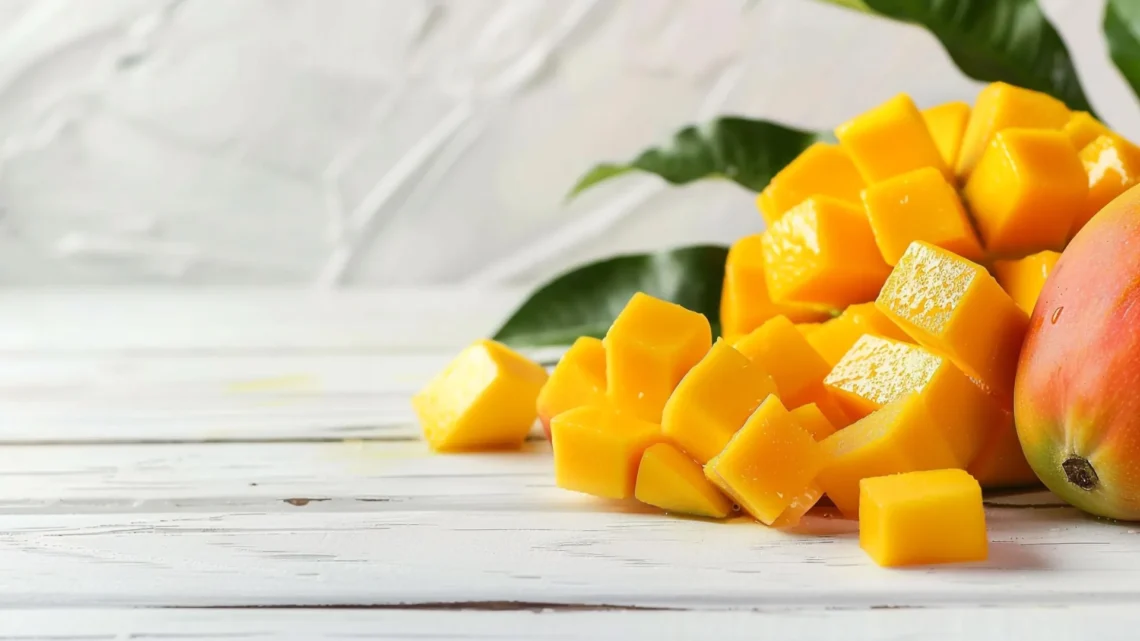When faced with two snacks—one with seven grams of sugar and another boasting over 30 grams—it’s tempting to assume that the snack with less sugar is the healthier choice. But the reality is more complex; less sugar doesn’t always mean a food is healthier.
For the nearly 100 million adults in the U.S. living with prediabetes, a tropical fruit that may lower diabetes risk sounds almost miraculous. Tropical fruits can contain anywhere from 10 to 50 grams of sugar, with mangos featuring on the higher end of that range. This raises concerns about their suitability as a healthy snack. However, research from clinical nutrition expert Raedeh Basiri suggests that mangos, despite their higher sugar content, can provide significant health benefits for those with prediabetes.
“It’s not just the sugar content that matters; it’s the entire context of the food,” explained Basiri, an assistant professor in George Mason’s Department of Nutrition and Food Studies. This study marks the first long-term clinical investigation to highlight both metabolic and body composition advantages of mango consumption in prediabetes.
In simple terms, the key lies in looking beyond just the sugar in food; it’s important to consider the whole food itself. The natural sugars found in mangos and other fruits are balanced out by fiber, vitamins, and essential nutrients that enhance overall health. In contrast, foods with added sugars, like breakfast cereals and even some low-sugar snacks, may lack nutritional depth and could further increase diabetes risk.
“Our aim is to encourage individuals to incorporate whole fruits, like mangos, into their healthy eating habits and dietary strategies for preventing diabetes,” Basiri stated. “Those at risk for diabetes should focus not just on sugar content but also on how sugars are presented in foods.”
In the study, Basiri and her team divided participants into two groups: one group consumed a fresh mango daily, while the other group received a low-sugar granola bar. Over six months, researchers monitored participants’ blood glucose levels, insulin responses, and body fat percentages.
At the end of the study, the results showed that the high-sugar mango (32 grams of sugar) was more beneficial than the low-sugar granola bar (11 grams of sugar). Participants who ate the mango saw improvements in blood glucose control, increased insulin sensitivity, and reduced body fat.
“Daily Mango Intake Improves Glycemic and Body Composition Outcomes in Adults with Prediabetes: A Randomized Controlled Study” was published in Foods in August 2025.
This research was funded by the National Mango Board, and the authors report no potential conflicts of interest. The funding body had no involvement in the study’s design, data collection, analysis, interpretation, or publication decisions.
About the Researcher
Raedeh Basiri is a registered dietitian and assistant professor in the Department of Nutrition and Food Studies at George Mason’s College of Public Health. She specializes in personalized nutrition therapy and the application of emerging technologies, such as continuous glucose monitoring, to enhance outcomes for those with prediabetes, diabetes, and metabolic syndrome. Combining randomized controlled trials with large-scale data assessments, Basiri explores how whole foods and dietary patterns influence insulin resistance, glycemic control, sleep, mental health, and gut health. She is dedicated to chronic disease prevention, collaborative research, and mentoring future nutrition professionals.
Summary: A study by Raedeh Basiri reveals that mangos, despite their higher sugar content, may provide significant health benefits for adults with prediabetes. The research suggests that the nutritional value of whole foods, like fruits, is more important than just sugar content alone, offering new insights into dietary choices for diabetes prevention.





